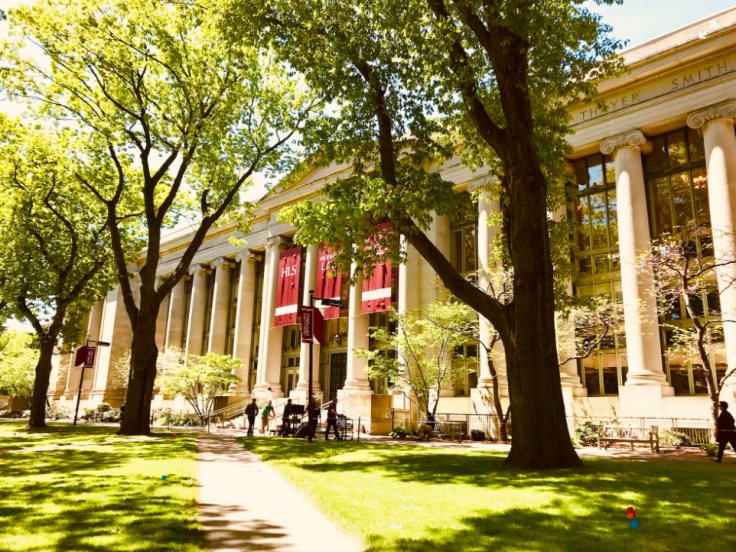The recent resignation of the University of Pennsylvania president, Liz Magill, over the issue has sparked debates over how to address this alarming trend.
President Joe Biden, despite his unwavering support for Israel, has chosen to maintain a cautious distance from the controversy, signaling a delicate balancing act between condemning antisemitism and avoiding unnecessary entanglement in campus politics.

The Harvard, MIT, and UPenn Testimonies
Sky News host James Morrow's commentary recently highlighted a growing concern about antisemitism on American university campuses, particularly within elite Ivy League institutions. He sheds light on a recent congressional hearing where the presidents of Harvard, MIT, and the University of Pennsylvania faced scrutiny over their response to increasing antisemitism on their campuses. The leaders failed to decisively denounce calls for genocide against Jews, sparking a larger debate about their handling of antisemitic rhetoric within the academic institutions.
Biden's Non-Response
In contrast to the proactive stance taken by some past presidents like Bill Clinton and early Barack Obama, President Biden has chosen not to insert himself into the controversy surrounding the Ivy League presidents. While Biden remains steadfast in his support for Israel and has denounced antisemitism, his decision to stay aloof reflects a broader strategy within the administration-to carefully choose battles and avoid unnecessary entanglements.
White House's Stance and Criticisms
The White House has issued a statement condemning any statements advocating for the systematic murder of Jews, emphasizing the need to stand firmly against such sentiments. However, the administration has refrained from calling for the resignations of the implicated university presidents, a decision that has received both support and criticism.
Some Biden allies, like Jason Furman, argue that the White House's condemnation was too harsh and lacked nuance. Furman suggests that the complexity of the presidents' answers during the hearing was lost in the subsequent coverage, leading to a disingenuous portrayal of the situation. This internal disagreement highlights the challenges of addressing sensitive issues without further polarizing the public.
Biden's Delicate Balancing Act
Biden's decision to keep a distance from the controversy is a reflection of the administration's cautious approach. The president and his advisors believe that university personnel decisions do not warrant direct presidential involvement, as intervening could complicate the administration's clear position against antisemitism. Biden's reluctance to call for resignations aligns with the administration's careful consideration of the messages it sends in the fast-moving landscape of campus culture debates.
Stefanik's Influence and Harvard's Independence
Republican Rep. Elise Stefanik's vocal push for the resignations of Harvard President Claudine Gay and MIT President Sally Kornbluth has added a political dimension to the controversy. Stefanik's involvement has been met with resistance from many at Harvard who argue that it jeopardizes the institution's independence from political pressure. This further complicates the situation, making it a test not only for the American elite but also for the broader issue of preserving academic freedom.
While Biden has chosen not to involve himself directly in the calls for resignations, his administration has taken concrete actions against antisemitism. The issuance of a strategy for combating antisemitism over the summer and launching investigations into colleges and universities, including Harvard and Penn, demonstrate a commitment to addressing the issue at a systemic level. These actions, according to Jonathan Greenblatt of the Anti-Defamation League, speak louder than any potential statements from the president.
The rise of antisemitism on American university campuses, particularly within elite Ivy League institutions, poses a significant challenge that demands careful consideration. President Biden's delicate balancing act reflects a nuanced approach, emphasizing the need to condemn antisemitism while avoiding unnecessary involvement in campus politics. The ongoing controversy serves as a critical test for the administration's commitment to addressing sensitive issues and upholding the values of free speech and academic freedom in higher education.
© 2025 University Herald, All rights reserved. Do not reproduce without permission.








